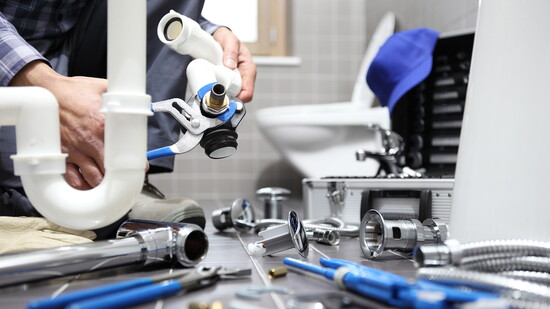Plumbing problems tend to show up at the worst possible time. From clogged drains to leaky pipes, the smallest plumbing problems will transform into large system crises if home owners fail to address them. Learning the warning signs and keeping up with routine maintenance can help keep your home’s plumbing system in tip top shape.
Regarding unexpected plumbing issues, Chad Hart, co-owner and master plumber of Continental Plumbing, has seen it all. “Most of the time, people will break off a hose bib while working outside in the heat during the summer. They may yank on a hose and don’t expect it to break off in the wall. One of two things happens when you do that. Water pouring in or outside of your house depends on how the house was plumbed,” he shared.
While many assume that Florida’s heavy rains or scorching heat affect residential water pressure, Hart says otherwise. “Rainy season and pressure in homes don’t correlate. It doesn’t rain and affect your plumbing system—that’s just not how it works,” he says. Still, Hart notes that pressure-related issues do exist, it just may not be what most would expect. “It’s mostly a pressure drop, not a rise,” he explains. “If you’re filling a pot at the sink and it starts strong, then drops to a trickle, something’s likely obstructing the flow—usually a faulty water softener or filtration system.”
Although Florida’s heat and moisture don’t necessarily weaken pipes over time, Hart cautions against leaving exposed PVC, CPVC, or PEX piping in the elements. “The sun makes plastic brittle. If you look at it wrong, it might break,” he says.
Installing a Pressure Reducing Valve (PRV) is one solution for regulating water pressure. “It lowers the PSI from the city to your home,” Hart explains. But that’s not a DIY job. “Hire a professional, licensed plumber,” he advises.
When it comes to plumbing materials, Hart stands by copper. “It’s tried and true for pressure,” he says. While many pipes claim to handle 150 PSI or more, he trusts copper based on decades of experience.
Homeowners can stay ahead of issues with a few routine checks. “Look under sinks for corrosion or discoloration,” Hart suggests. “Check the water heater for green or brown calcium buildup. Those are early signs something’s going wrong.” And always know where your main shutoff valve is—it could save you thousands in damage during an emergency.
Hurricane season brings additional risks. Hart keeps his property storm-ready by removing hoses from outdoor spigots and trimming back trees and debris near plumbing fixtures. “If something breaks during a storm and you can’t get to it, you’re stuck without water,” he warns.
In a major storm or power outage, water pressure and drainage could be affected—especially if city pump systems go down or a tree damages a main. “People plant trees right on top of water mains,” Hart says. “Storm comes through, roots shift, and boom—pipe’s broken.”
If you’re hearing gurgling or dealing with drainage issues, don’t wait. “Call a professional before a storm hits,” Hart advises. “Know where your cleanout is. If the city’s system backs up, you can relieve pressure and avoid a mess inside your home.”
Hart’s advice is simple: “Hire a professional before it gets over your head. Plumbing might look easy, but it’ll cost more when you have to fix your fix."
If you need a licensed plumber or more information on proper preventative maintenance, you can learn more at www.continentalplumbing.net.
